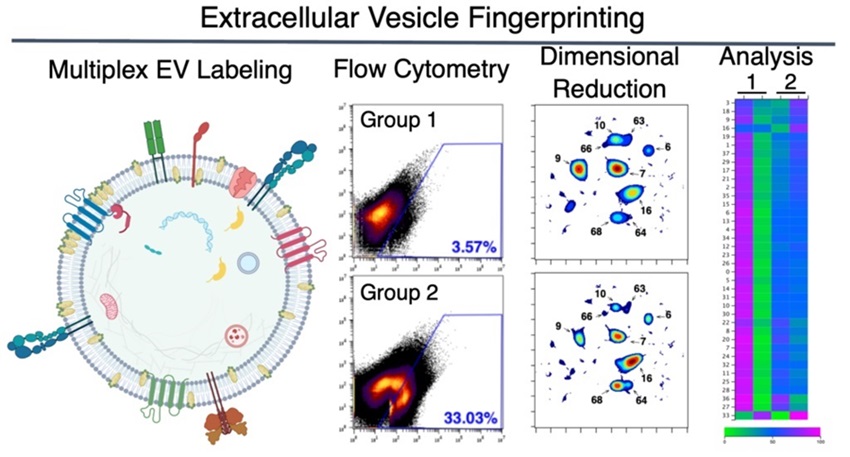New Analytical Tool Could Replace Traditional Biopsies with Liquid Biopsies for Disease Diagnosis
Posted on 17 Jul 2024
Biopsies are important clinical tools used to diagnose various diseases or monitor tissues for abnormal growth or transplant rejection. Typically, this involves removing tissue samples from the body for closer examination, which can be invasive depending on the tissue required. Researchers have developed a new analytical method that could enable the use of "liquid biopsies" as an alternative to traditional biopsies for certain patients or diseases.
This new tool, developed by researchers from Vanderbilt University’s School of Medicine Basic Sciences (Nashville, TN, USA), is known as EV Fingerprinting, where EV stands for extracellular vesicles. EVs are membrane-bound particles filled with biologically active materials that play a crucial role in cell-cell communication in both health and disease. Although EVs have been studied since the 1980s, their origins and functions have not been fully defined. Research on EVs has intensified over the last two decades, revealing their involvement in processes such as endocrinology, immune responses, and even cancer progression across various species, including humans. The term EV encompasses vesicles of different sizes and cargoes, each likely specialized for different functions. Variations in the heterogeneity of EVs within an organism can indicate changes in its biological state—such as transitioning from a normal to a cancerous state—which can be used as a clinically informative biomarker.

The fingerprinting technique allows for the characterization of EVs with minimal sample preparation in a high-throughput manner, enabling better classification of the vesicle types present in the sample. The technique highlighted in a paper published in ACS Nano in April 2024 involves isolating EVs from other cellular materials in a sample, staining them with a fluorescent lipophilic dye that integrates into the EVs’ lipid bilayers, and processing them through a flow cytometer. This instrument directs a laser at the sample and gathers data on how the light is scattered or emitted. The data is then compiled into a "fingerprint" that facilitates quantitative analysis of different EV populations and assesses how these populations change due to experimental manipulations, molecular disturbances, or disease states. EV Fingerprinting marks a significant step forward in the characterization of EVs, offering insights into the composition of the lipid bilayers of the EVs in a sample and segregating them into distinct populations—something not achievable with previous bulk analysis methods. This innovative approach, which utilizes the composition of the lipid bilayers—a previously underexplored characteristic of EVs—could one day replace traditional biopsy methods with a simple blood draw, greatly benefiting patients requiring diagnostic testing.
“EV Fingerprinting is furthering the development of liquid biopsies in which the EVs can be used as biomarkers for diseases such as cancers or neurological disorders,” said Ariana von Lersner, a former graduate student and current postdoctoral scholar whose dissertation work culminated in the development of the EV Fingerprinting tool.
Related Links:
Vanderbilt University’s School of Medicine Basic Sciences













